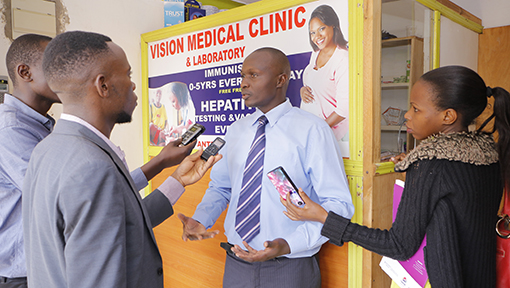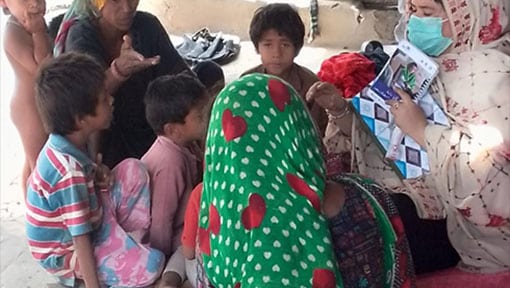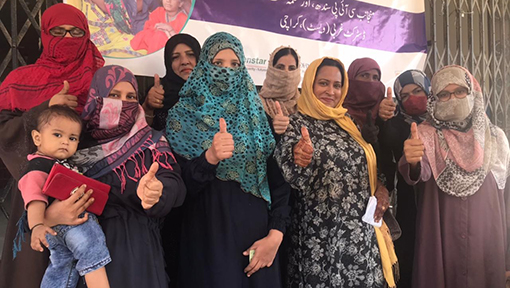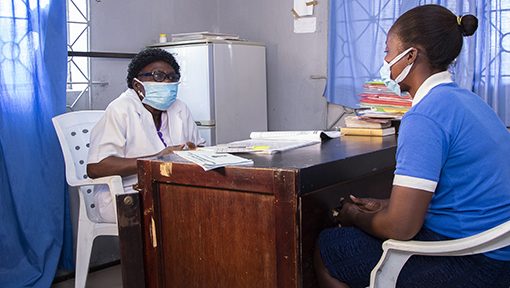Powerful Data Helps Private Health Centers in Uganda to Diffuse Impact of TCI Interventions
Contributors: Kullein Ankunda & Beatrice Bainomugisha

Dr. Tonny Kabuga, Director of the private Vision Medical Clinic and Laboratory in Uganda.
Dr. Tonny Kabuga directs the private Vision Medical Clinic and Laboratory in Kireka ward, which is located in the Kira municipality of Uganda’s Wakiso District. He first heard about The Challenge Initiative (TCI) during a review meeting while he was reporting to the municipality on health issues. From available data, Dr Kabuga had noticed uneven progress of reproductive health services in the District. This, he believed, was due to unsustainable scale-up mechanisms in ensuring access to sexual and reproductive health services including family planning.
TCI – locally implemented as Tupange for Better Cities (which loosely translated is “let us plan together”) – works in 218 facilities in Uganda and has trained health providers on how to use its evidence-based interventions to increase contraceptive services to men and women of reproductive age, including adolescents and youth. Through diffusion of the interventions, health facilities not directly supported by TCI, including private ones, still benefit through Sisi kwa Sisi coaching from “Master Coaches” within their cities.
In this particular area, and this being a private-for-profit hospital, most times we are not supported in the area of family planning. Those of us who work in reproductive health services saw the support that Tupange for Better Cities (TCI) had offered some of our facilities. We have seen the profound commitment to increase access and knowledge and use of approaches to ensure everyone accesses quality family planning health services,” Dr. Kabunga said.
TCI’s Master Coaches mentor health facility staff beyond TCI-supported facilities to create an enabling environment for urban women to access reproductive services when and where they want to access them. Another health provider shared Dr. Kabuga’s sentiments. Jane Chege, a nurse in Bweyogerere Health Centre III, was one of the first beneficiaries of TCI coaching, which took place during its inception phase in 2018.
This is not a TCI-supported facility, however, we train the health workers on the provision of quality reproductive health services up to community level. We now have a pool of trained providers who assess the gaps and offer continuous on-site coaching and mentorship. I am currently coaching three health workers,” Chege said. “We advocate for use of long-term methods (LARCs) as a way to address the gap in the population-expertise ratio. As a clinic, we review our data on a monthly basis and collaborate with other facilities to find ways to mobilize private and NGO-sector resources to meet public sector needs in ways that ensure ownership. The coaching is ongoing and we are gaining skills – take the case of an outreach we can get over thirty clients requesting for injectables.”
Ms. Beatrice Bainomugisha, TCI’s focal person for Wakiso district, noted that the city is responsible for ensuring quality services in its catchment area.
Using existing good demographic and health data helps the trained coaches to see how to address challenges around contraceptive service availability, commodity supplies, service outlets and other parameters,” she said. “By cross-referencing data from various activities now available through the TCI dashboard, the Master Coaches with use of TCI University resources are able to make health systems more responsive to community needs.”






